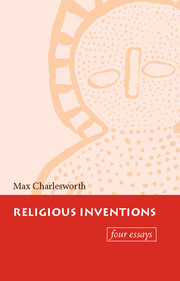Introduction
Published online by Cambridge University Press: 04 August 2010
Summary
The four essays that are at the centre of this book are exercises in the philosophy of religion, that is the philosophical discussion of certain crucial issues that arise about the important but diffuse dimension, or realm, or form of life that, for want of a better word, we call ‘religion’. The term ‘religion’, at least in its present use, is itself a relatively new one and most scholars agree that it is not a happy one. None of the great founders thought that they were founding a ‘religion’; instead, they spoke of a ‘revelation’ or disclosure of the divine, or of a ‘Way’ of belief and living, or of a ‘Law’, or of the ‘spiritual life’, or of a life of ‘perfection’. Jesus, of course, spoke of setting up a new ‘kingdom’, or the reign or sovereignty of God. Again, and more importantly, ‘religion’ conveys the wholly misleading idea that all the multifarious beliefs and practices and (to use Aristotle's term) ‘phenomena’ that we now call ‘religious’, have something in common by reference to which we can define religion and clearly demarcate it from other areas of human life such as the realms of ethics, or art, or science.
DEFINING ‘RELIGION’
Nineteenth- and twentieth-century attempts to define the religious sphere, in much the same way as Kant tried to specify the conditions that make possible ethics and aesthetics and science, have proved to be illusory, confronted by the extraordinary variety and complexity of the realities and experiences we call religious.
- Type
- Chapter
- Information
- Religious InventionsFour Essays, pp. 1 - 22Publisher: Cambridge University PressPrint publication year: 1997

